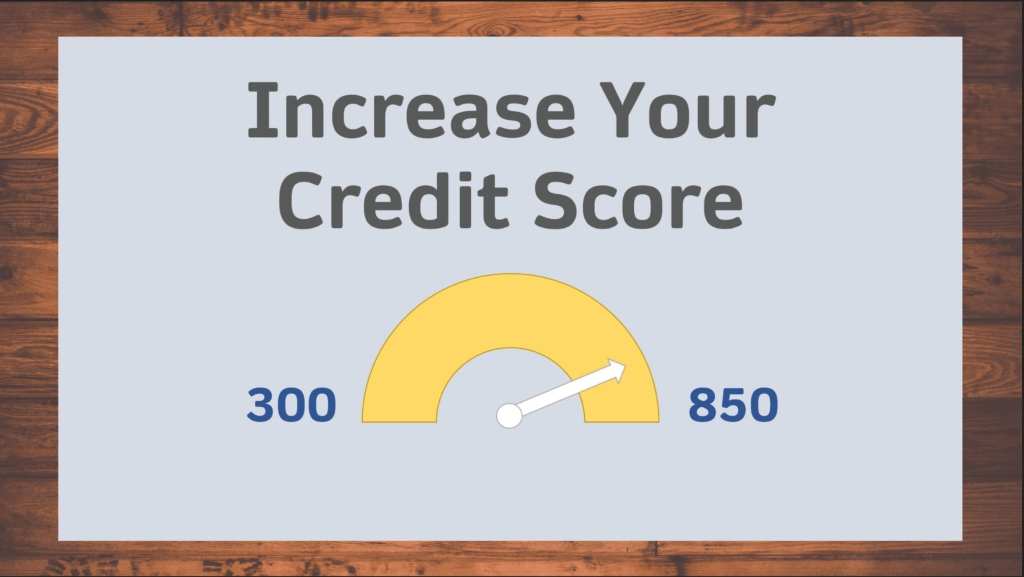This post may contain affiliate links, which means I’ll receive a commission if you purchase through my links, at no extra cost to you. Please read full disclosure for more information.
Increasing your credit score is essential to receiving the best rates on all types of credit you’ll encounter. Bad credit will be held against you financially and even professionally, as some employers check your credit while conducting background checks. In this post, we’ll share the 10 best tips on how to improve your credit score in 2021.
A REVIEW ON CREDIT SCORES
Credit scores are 3-digit numbers used by lenders to determine one’s creditworthiness when approving credit card and loan applications. The score will give lenders an idea of the likelihood of them getting their money back and on time.
Credit scores are built using credit reports. A credit report is a report that lists out your credit activity as a borrower and the status of your credit accounts. Credit reports are generated by three main credit bureaus: Equifax, Experian, and TransUnion.
These credit reports are used in proprietary scoring models such as the VantageScore and FICO to calculate a credit score ranging from 300-850, with higher scores implying higher creditworthiness.
You can look up your credit score in a few different ways.
- Your credit card company may offer a credit monitoring feature you can view online or on a mobile app
- Current credit scores may be listed on your credit card or loan statements
- Use an online credit score service such as Credit Karma or PrivacyGuard
- Find nonprofit credit counselors that offer credit reports, scores, and advice.
Higher credit scores are important for improving your chances of being approved for credit and ensuring that you’re awarded the most favorable terms, such as lower interest rates.
Around 90% of lenders use the FICO score when considering applicants for credit.
Let’s go into how credit scores are calculated.
HOW CREDIT SCORES ARE CALCULATED

Credit score calculations consider several factors. Some factors are weighted with greater importance than others. Here is the breakdown:
Payment history – 35%
The most impactful part of your credit score is your payment history. Lenders want to know that you pay your bills and you pay them on time.
Debt amounts owed – 30%
The amount of debt you owe is slightly behind payment history in magnitude of importance. Lenders will look at your credit utilization, which is the amount of debt you owe as a proportion of your total credit limit amount.
For example, imagine you have 3 credit cards, each with $1,000 owed on them and credit limits of $3,000 each. Your total debts owed would be $3,000 and your total credit limit would be $9,000. Your credit utilization would be 33% in this case.
It is best practice to keep your credit utilization under 30%.
Length of credit history – 15%
Length of credit history is the duration of time you have been building credit. If you got your first credit card 5 years ago, your credit history would be 5 years. This is important to credit scores because more information is available on your credit and spending habits, which can prove your creditworthiness.
Length of credit history also comes as an average. If you got your first credit card 5 years ago and got another one recently, your average length of credit history would decrease.
Credit files with older accounts have a more positive impact on credit scores.
Length of credit history is one of the things that holds back younger borrowers from achieving excellent credit scores. They’re just too young and haven’t had enough years of credit under their belts.
New credit – 10%
New credit, or credit inquiries, looks at the number of times you apply for new credit. Whenever you apply for a new credit card or loan and they run a “hard-inquiry,” that application for credit will be reported on your credit report.
Too many applications for credit in a short amount of time is a red flag to lenders. It could send the message that you are in some type of financial distress, requiring the need for credit to support yourself financially.
It’s a good practice to only apply for credit cards and loans when it is necessary and to space out the time between applications.
Credit mix – 10%
Credit mix refers to having a variety of loan accounts. Instead of having 6 loan accounts all coming through credit cards, a mix of credit could include 3 credit cards, an auto loan, a cell phone payment, and a mortgage.
Showing you can responsibly manage a variety of account types sends a good sign to credit bureaus.
Here’s some related content!
- Invest or Pay Off Debt? What Should You Do?
- How to Save for and Build an Emergency Fund
- Book Review: The Psychology of Money by Morgan Housel
- Book Review: I Will Teach You To Be Rich by Ramit Sethi
- Book Review: Financial Freedom by Grant Sabatier
10 TIPS TO INCREASE YOUR CREDIT SCORE

1. Pay your bills on time
With your payment history accounting for 35% of your credit score, your first step towards an improved credit score is paying your bills on time.
Begin by tracking all forms of credit you have including credit cards, student loans, car loans, mortgages, etc. Organize your credit and keep track of payment dates. Then you can set up payment reminders that will send you a notification before a payment is due.
To further increase your chances of paying your bills on time, you can also enroll in auto-pay. Many lenders offer an auto-pay program you can enroll in that will automatically withdraw funds from your checking account to make your payments.
2. Pay off debts owed to decrease utilization

Lowering the amount you owe will help increase your credit score. Create a plan and stick to it to get your credit utilization to under 30%. Here is an article from Fundera that dives deeper into credit utilization: Credit Utilization: What It Is and How to Optimize for It.
3. Make more than 1 payment on your cards per month
Although you are required to make one monthly payment a month on credit cards, nothing is stopping you from making multiple payments in one statement period (month).
Making multiple payments during the month will help in decreasing your utilization rate. Nerd Wallet recommends matching credit card payments to your paychecks. Whenever you get paid, make a payment.
At the end of your statement period, you wouldn’t want to have your utilization nearly maxed out. Once that info is sent off for your credit report, it will have a large negative impact. Making multiple payments before the date information is sent to the credit bureaus will give you the chance to have that reported debt amount and utilization be a lot lower.
4. Ask for credit limit increases

One way to decrease your credit utilization is to increase your credit limits.
Credit card companies will grant borrowers with credit limit increases automatically over time for those in good standing. These individuals make payments on time and use their cards responsibly.
They will also grant increases through requests. As a cardholder, you can submit a request for a credit increase, which can get you an increased limit faster than waiting for it to happen automatically.
A credit limit increase is good for your utilization because of the math behind it. For example, you have $4,000 in credit card debt and your credit limit is $10,000. Your utilization rate is 40%.
Now, you request a credit limit increase and you are granted a new credit limit of $20,000. Now, your $4,000 in debt owed with a $20,000 limit gives you a 20% utilization rate. A simple credit limit increase cut your utilization rate in half and put you under the 30% amount you should aim for.
While not ideal, another way to increase your credit limit is to apply for a new card. That new card will come with its own credit limit and will increase your overall credit limit amount.
5. Don’t submit multiple credit inquiries in a short amount of time
Applying for multiple credit cards or loans in a short period of time will negatively effect your credit score.
Multiple inquiries in a short amount of time is a red flag for lenders. It could send the message that you need the credit in order to make payments and purchases on things you cannot afford through your own funds.
If this is the case, lenders won’t have confidence in an individual making their payments.
If you do have to apply for credit, look out for applications using a “soft credit inquiry.” A soft inquiry is a credit check that does not affect your credit score.
6. Don’t close accounts for unused cards

If you have a number of credit card accounts, you should avoid closing them for two reasons:
- Closing older card accounts will decrease your average length of credit history
- Closing accounts will decrease your overall credit limit and increase your utilization rate
One situation where it would make sense to close a credit card account is when there are high annual fees associated with a card. If you aren’t using a card and its benefits, it doesn’t make sense to pay a $450 annual fee.
To prevent yourself from needing to cancel a card, take a second and put some thought into your decisions when applying for credit cards. If you have any reason to believe you would cancel the card in the future, it might be best to avoid the new card altogether.
7. Mix up the type of credit you have
Mixing up the type of credit you have requires having different types of loan accounts. You can have different accounts for credit cards, student loans, auto loans, mortgages, etc.
This doesn’t mean you should go out seeking loans just to boost your credit mix. Remember, credit mix only accounts for 10% of your overall score, so lacking mix isn’t terrible.
But if you are aiming for a perfect score, diversifying your mix can help.
A credit report showing responsible management across a variety of credit accounts will boost your score. It shows that you have a clean track record on multiple types of loans and can be trusted to maintain that clean record for future borrowing.
8. Become an authorized user

Becoming an authorized user involves another cardholder (usually with a long and healthy credit history) adding your name onto their account. They will get sent a credit card with the authorized user’s name on it for the authorized user to use.
The primary account holder is responsible for the payments on the card, not the authorized user.
By becoming an authorized user, you can gain access to cards you otherwise could not qualify for. In addition, your credit score can receive a little boost through the lengthening of your credit history and a decrease in your utilization with the increase in credit limit.
9. Self-report more of your credit information
Credit reports track most of your credit information, but some things are not included that you can get credit for.
You can report your positive payment history for things such as rent, phone bills, and utility bills. You can also allow services to include your bank accounts for consideration towards your credit score.
Including this extra information gives more proof towards your case for a higher credit score.
Here are some resources:
Rent – PayYourRent, RentTrack
Phone and utility bills – Experian Boost
Linking checking, savings and money market accounts – UltraFICO
- Connecting these accounts can increase your FICO score based on indicators of sound financial behavior.
The caveat of self-reporting is that you want to self-report healthy accounts. You don’t want to self-report your rent payments if you are consistently late or have fallen behind.
10. Dispute errors on your credit report

Credit reports aren’t perfect and are susceptible to occasional errors. Achieving a high credit score is about eliminating reasons that can cause your score to go down, as much as it is about doing things to make your score go up.
Check your credit reports and credit scores for accuracy and ensure there are no errors or signs of fraud. Make sure all financial information is represented correctly and that the credit accounts shown are accounts that you are aware you have opened.
If you have a mark for a missed payment on something that you know you paid, you can dispute the error and get it removed if the error was not your fault.
Here is an article by Ramit Sethi, author of I Will Teach You To Be Rich: How to send a credit report dispute letter (with scripts)
SUMMARY
Credit scores are important for having access to credit at favorable terms. This will come in handy when you need to apply for credit cards, home loans, auto loans, student loans, and any other type of debt.
Having a high credit score should be a focus of yours as it is one of the main considerations when lenders decide to loan.
There are many ways to build credit and we have shared 10 of them in this post.
Some tips may be less impactful than others, but when you are trying to improve your credit score as much as you can, any tip for an additional point to your score will help.



